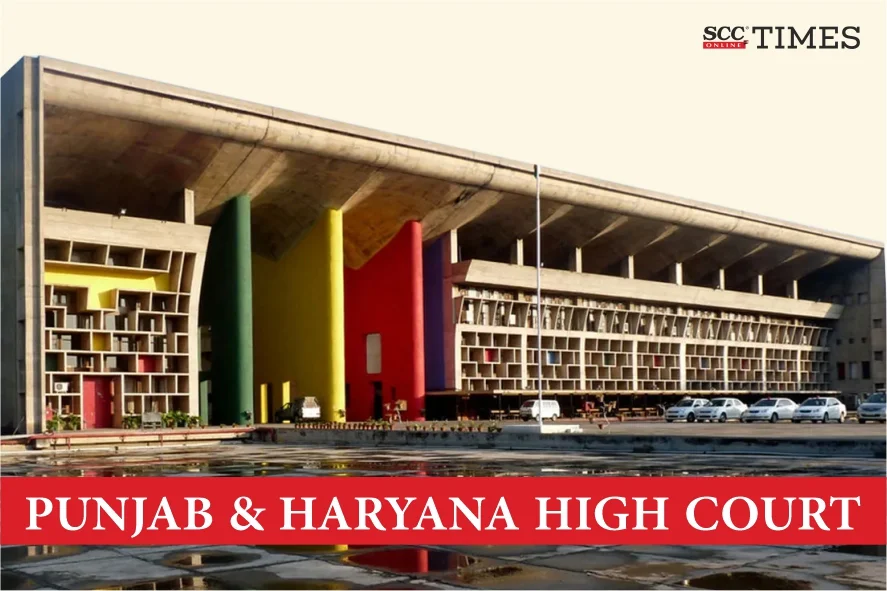Punjab and Haryana High Court: In a second anticipatory bail application filed by the accused under Section 482 of the Bharatiya Nagarik Suraksha Sanhita, 2023 (‘BNSS’) for alleged offence under Sections 18(c) and 29 of the Narcotic Drugs and Psychotropic Substances Act, 1985 (‘NDPS Act’), the Single Judge Bench of Sumeet Goel, J., rejected the application holding that the accused evaded arrest for two and a half years and demonstrated a clear disregard for the judicial process.
Background
Allegedly, the accused was implicated after five kilograms of opium were recovered from the co-accused, and he named the accused in his disclosure statement. The previous anticipatory bail application of the accused was dismissed by the Court, holding that recovery of heavy ‘commercial’ quantity from the co-accused indicated that the contraband was intended for commercial or business purposes, not personal consumption. The Court also held that for proper investigation in order to find any nexus between the accused and co-accused and to find out the source of the contraband, the custodial interrogation of the accused was necessary.
Thereafter, the present application was filed.
Analysis and Decision
The Court stated that in the present plea, the accused reiterated the same ground as the first anticipatory bail application, i.e., he was falsely implicated in the FIR based on the disclosure statement of the co-accused and further took the ground that the co-accused was granted regular bail. The Court noted that the co-accused had voluntarily subjected himself to the legal process and suffered incarceration for more than 2 years, whereas the accused had wilfully evaded his arrest and failed to submit to the process of law. The Court added that the conduct of the accused demonstrated a clear disregard for the judicial process and constituted a compelling ground for denial of anticipatory bail.
The Court further noted that the present anticipatory bail application was preferred after a gap of more than two and a half years from the date of rejection of the first application. The prolonged evasion of the accused weighed heavily against the exercise of discretion in his favour under the provisions of anticipatory bail. Thus, the accused evaded the process of law for two and a half years. The Court stated that the conduct of the accused in avoiding arrest for such a prolonged period without any reasonable cause must be considered during adjudication of the present application.
The Court said that the process of justice was meant to treat everyone fairly and equitably. However, if the accused chose to employ irregular and convoluted tactics, including undue delay, strategically aimed at frustrating the lawful proceedings/ investigation, it was tantamount to an abuse of the process of justice. The Court stated that while the liberty and dignity of an individual had to be held high, no one could be permitted to subvert and cause devolution in the process of justice. Protracted absence, eluding the process of law, and abrupt repetition of anticipatory bail pleas, in the absence of convincing reasons, was not a conduct that called for sympathy or indulgence of the Court. The Court added that the hiatus of more than two and a half years was inexplicable, or rather, wilful disobedience. Therefore, the conduct of the accused, in this backdrop of the nature or severity of allegations made against him, disentitled him for anticipatory bail.
Furthermore, the Court stated that there was no fresh substantial change in circumstances that would indicate that the accused was entitled to maintain his second anticipatory bail application. All the grounds urged in the present application were considered and decided upon in the first application.
Thus, the Court held that from the facts presented herein, there was no fresh ground or circumstance that would enable the accused to file and maintain the present application. Accordingly, the present application was liable to be dismissed on merits as well.
Holding the aforesaid, the Court rejected the application and clarified that the observations made herein should not have any effect on the merits of the case or the investigation, and the Trial Court must proceed without being influenced by this order.
[Gurpreet Singh v. State of Punjab, 2025 SCC OnLine P&H 229, decided on 16-01-2025]
Advocates who appeared in this case:
For the petitioner: Gurbir Singh Sidhu






